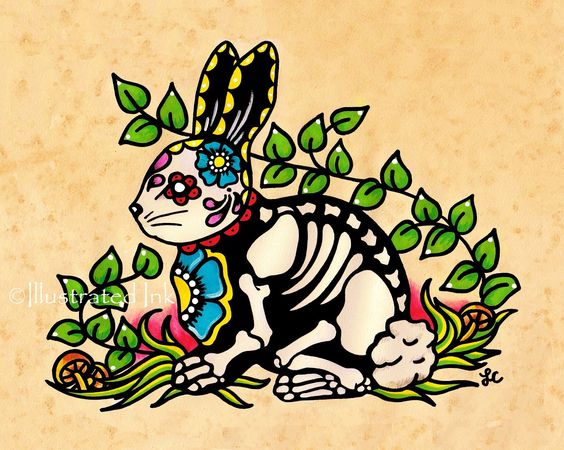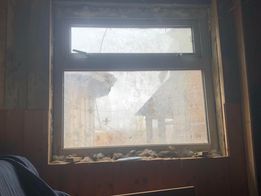Three poems to complete this Tenth Ten (Poems – tenth ten), so the end is in sight for poetic posts and perhaps by then this bitter chill that we stubbornly call springtime will have abated and we’ll be getting called outdoors for worthier tasks at all hours of the day and night….
“A drop of blood….”, which my typescript copy indicates is number 35 of “A Year of Undoing” – though where the other thirty-four (or so) have got to I don’t know – belongs more with the last grouplet I posted, but n’mind. It must date from about 1992 I think.
“My Country” is a lot more recent – written I guess following the disappointments of 2014 and thereafter. “My Country” qua love-poem puts me in mind of Paul’s dad Henry Kieniewicz, whose cousin-by-marriage (I think – though Paul says everyone in Poland is someone’s cousin) was Jan Rostworowski, a prominent poet of his time. “The trouble is”, Henry would say, his brow knitted in mystification, “I never know if his poems are about a girl, or a rose, or his native country, so I don’t really know what he’s saying”. It was only recently that it occurred to me that I had for years taken seriously what was actually a standard comedic line used by ordinary punters when describing poetry in general – and Henry was never one to miss the chance of a corny joke, the more well-used the better. So I’m still none the wiser about Jan’s poetry, which hasn’t been translated into English as far as I know, though I think he might have done some translations into Polish of Sylvia Plath, which may possibly give a clue as to his real poetic inclinations. Anyway My Country is about my country, as I don’t go in for metaphorical stuff – and there’s nothing that says you can’t write a love poem about your country.
The same issue applies in a sense to “Convenience Conveyance”, only here it’s more simile than metaphor (or the lack of it) – we used to get whipped at school if we forgot (as we generally did) that the little word “as” or “like” converted a metaphor into a simile. Convenience is definitely the oldest of the three poems here, as I believe it refers to my daily four-mile walk to Davidston House where I was working as caretaker at the time, and to the mo-ped my dear boss eventually raked out of the back of his garage and bestowed on me. I reckon it must have been a less than perfect machine, as I remember venturing with it into one of the (two, I think) garages that at the time existed on Huntly’s Duke Street, this one specialising in two-wheeled conveyances. Duke Street was a street where a lot happened back then, being not only two-way but I think also the main A96 thoroughfare through the town – God knows how everything even fitted in, let alone got to move – the Inverness-Aberdeen bus used to pause briefly for the driver to hurl various parcels through the door of the shop that housed the parcels office down at one of the narrowest points (and a great arrangement that was, the parcels delivery that the buses used to do, it must have been before they invented those wildly expensive and barely reliable courier services with their generally bewildered foreign drivers)…. Anyway “I dinna have time for newsing, loon, just leave it there” was what I got when I tried to explain what was wrong with my coughing little mount (typical Huntly rudeness, thought I, being used to the politesse and general news-hungriness of Keith). I don’t recollect how I filled the hours (days?) while I waited for it to be fixed. Anyway my “motorbike” clearly wasn’t all the unalloyed joy depicted in the poem. The picture below represents a dead rabbit, why? because my collie bitch Peggy used to run alongside me as I rode, easily keeping up with me even when I reached my bike’s giddy 40 mph maximum, and on one sublime occasion leaped into the ditch and with barely a pause emerged with a newly-killed rabbit which she gulped down as she ran and then threw up again when we got to Davidston and re-enjoyed at her leisure. I think I might actually have included that episode in another poem after she died – another, when I think of it, in A Year of Undoing.

I was going to make it a photo of an actual dead rabbit, but this seemed more respectful and besides it reminded me a bit of the ditch from whence Peggy hauled her catch. I did also try to find a particular snap of Peggy being poserish with me many years ago in Studio Keith, but seemingly that one was another victim of the Fire, so just as well, I’d only have got all mawkish [picture “Day of the Dead Bunny” courtesy of Etsy & Pinterest]…..
8. A Year of Undoing Nr. 35
A drop of blood in a field of snow
a single hour of our lifetime
one crumb from the banquet
I grudge him even that:
by fire ice and blood
a curse of lifelong ill
Is the only thing I wish him
that hour to be a plague-seed
eating into his cortex.
Eighty hours have passed since then
the one is already smaller –
eighty-one hours of ill
Whittle it down, and I suppose
the betrayal will be forgiven
The devastation looked on indulgently
The words of friendship he spoke with you
be unravelled into syllables, each
wriggling like maggots back into his flesh
And I will remember
Cursing is not my business
and perhaps the pin-prick
That’s left by the multiplying hours
will let me see how close
I am to him. Of course, it’s not so simple:
The single hour joins forces with
every shared intimacy –
the snow is bloodsoaked
And all our early love,
which time has made good, jumps
back in a new and sinister light.
_ _ _
9. My Country
My country
says she hates her face, I think
she hates herself, though she won’t admit it
she’s starved herself
of mercy and pity
thinks her hard edge will
do for positivity
My country
says she’s not creative, creativity
is for the toffs and ponces
she’d like to be like them
but it’s not for her, and anyway
someone has to sort the expenses
My country
says it’s better to stay in a pack
there’s laughter and strength in the herd
everyone keeping their head down
she’d kill a leader rather
than let him break cover
My country
says she’s the least important
of all countries
and if I say the opposite
she’ll hang me up
expose me to public ridicule
My country
says anyone who wants to stay in her
must be weak in the head
she’ll happily give passes out
to sunshine and ease of living
My country
does not take kindly to initiative
or authorship, that mug’s game
if initiative’s about
there’s some foreigner behind it –
she’ll always take kindly to him
My country
is empty except
where she’s knotted into conurbations
there the lights
keep out the stars, she never lies
now, contemplating the moon
My country
has thrown out all her mythologies
where she puts her feet down, that’s
where it’s all at
the only spirit she recognises
comes from a condensing worm
My Country
is a stubborn old goat
I’ve pictures that tell me
I liked her when we were young and fresh
but now I’m too weary to remember
if she was ever really dear to me –
and ever-dear is saying a lot
_ _ _
10. Convenience Conveyance
As if I’d once loved a girl, as if we’d gone that road
Sharing our intimacy and so come as
Far as quarrels and quarrelled often
Until the quarrel weighed more than the love
As if then with bitterness and some relief
We’d agreed to part – well, as if all that were done
Now I can pass her in the street, and though
I pick her out from others, it’s not from knowing
The heart welling up behind the face – and all
The indignation that once provoked – but sooner
For the random invitation in her graceful hips
For the abstract love in her devouring eyes.
As if I used to plod this road
Twice every day, grudgingly laying back
The heavy all-too-familiar miles, well
Now a motorbike whisks me off, and
Oh, the stones no longer gather in my boots
I never get hot or tired
The summer air goes floating by
As sweet as water, the hills no longer
Come crawling around my vision, but slide
Smoothly freshly out. All is well again. Only
I no longer taste the hidden yarrow’s pungence
I no longer hear the silver gean-tree singing.





